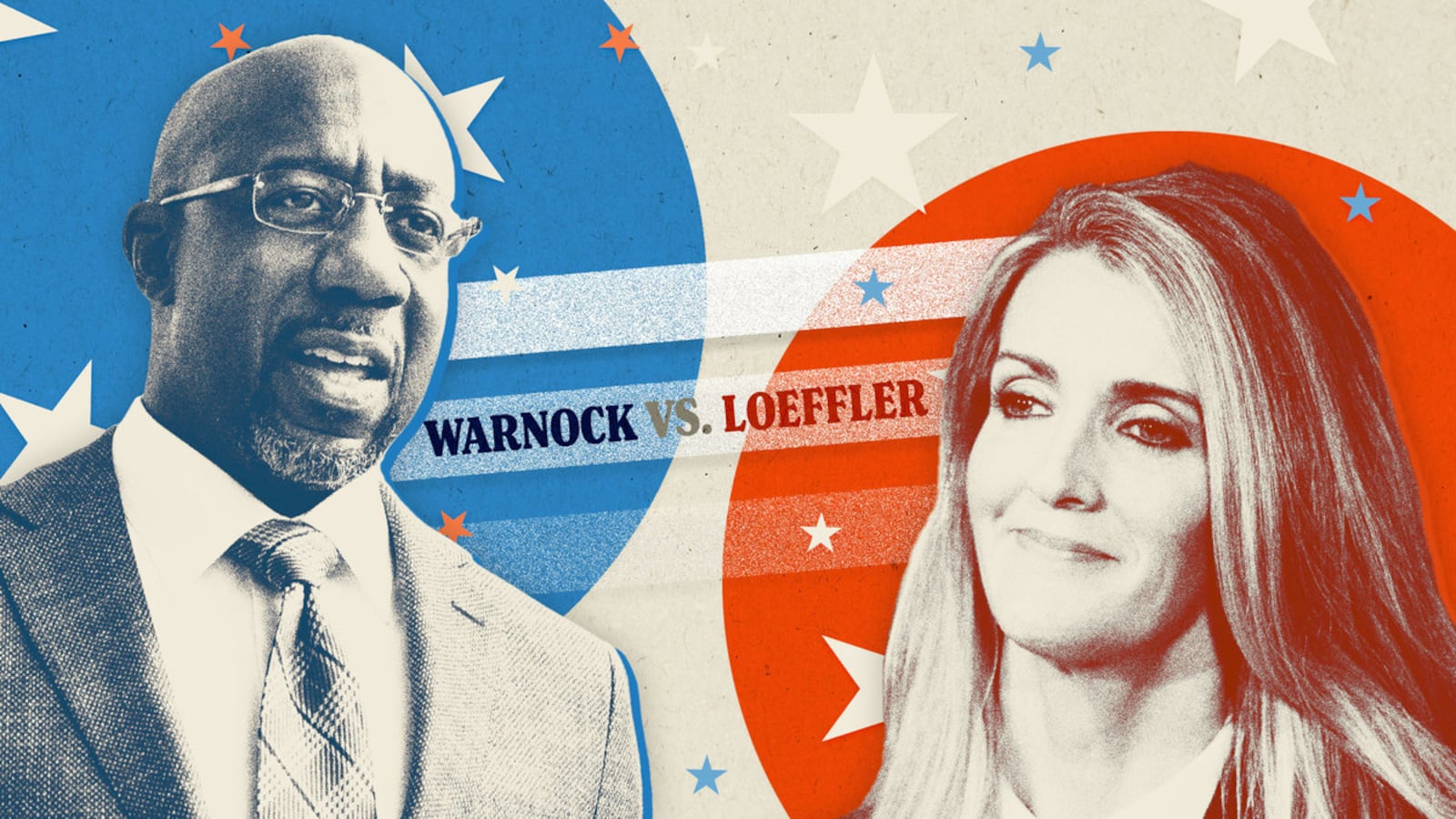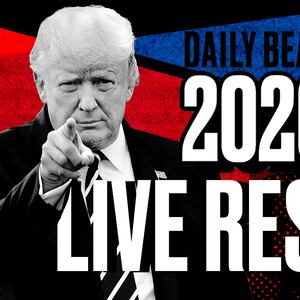One of the two marquee Georgia Senate elections appears to be heading to a runoff. Democratic Senate candidate Rev. Raphael Warnock secured a high enough percentage of the vote to advance to the second round against Sen. Kelly Loeffler (R-GA), who secured her place in the runoff after her opponent, Rep. Doug Collins (R-GA), conceded on Tuesday night.
Several news outlets reported that both Warnock and Loeffler were not on track to securing 50 percent of the overall vote. But both beat out Collins, who had mounted a competitive Republican challenge to Loeffler this year. Under the rules for the “jungle” style special election, because no candidate got an outright majority of the vote, the two top vote-getters will advance to a runoff election on Jan. 5.
Loeffler, the Senate’s wealthiest member, will be the favorite heading into the runoff election, particularly as Georgia Republicans, previously split between Loeffler and Collins, consolidate around a candidate of their party. Loeffler also enjoys the backing of the national GOP and the formidable political apparatus aligned with Senate Majority Leader Mitch McConnell (R-KY), and has personally poured $23 million into her own campaign.
Georgia Gov. Brian Kemp appointed Loeffler to the Senate seat in December after the retirement of former Republican Sen. Johnny Isakson. Her campaign was dogged by controversy all year, particularly after The Daily Beast reported that Loeffler and her husband, New York Stock Exchange chairman Jeffrey Sprecher, sold off millions of dollars in stock in the wake of a closed-door Senate briefing on the coronavirus in January.
The story drew allegations of congressional insider trading that Loeffler and Sprecher both vehemently denied. Investigations by the FBI and Senate ethics officials did not result in any allegations of wrongdoing. The issue nonetheless dogged Loeffler throughout the campaign, as she fended off charges of profiteering off of the pandemic and resulting economic devastation.
Warnock emerged from relative political obscurity to mount a formidable Senate campaign in a state traditionally dominated by Republicans. As Democrats increasingly eyed Georgia as a possible, if difficult, Senate pickup opportunity, Warnock began raking in substantial fundraising numbers—enough to rival even Loeffler’s huge self-funded war chest.
As his candidacy picked up steam, Warnock also earned endorsements from key Democrats in Georgia, including former president Jimmy Carter, former Georgia gubernatorial candidate Stacey Abrams, and the late Rep. John Lewis.
Warnock’s rise in the polls was sudden and dramatic. A Monmouth University poll taken last week showed Warnock garnering 41 percent of the vote, beating Loeffler by 20 points and Collins by 23. The same poll just three months earlier had Warnock pulling just 9 percent and trailing both Republicans by double digits.








